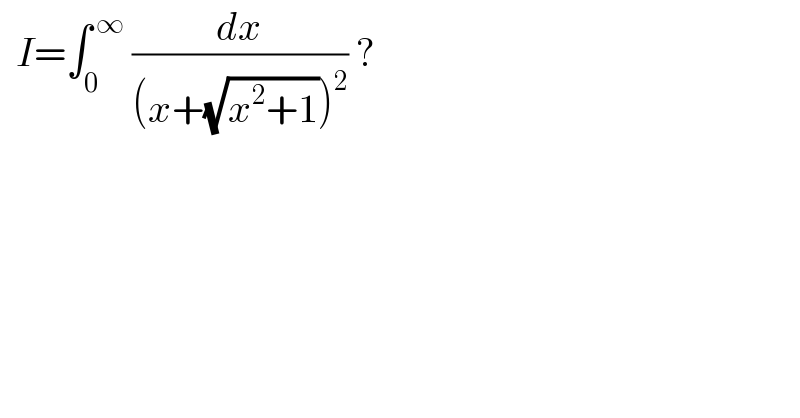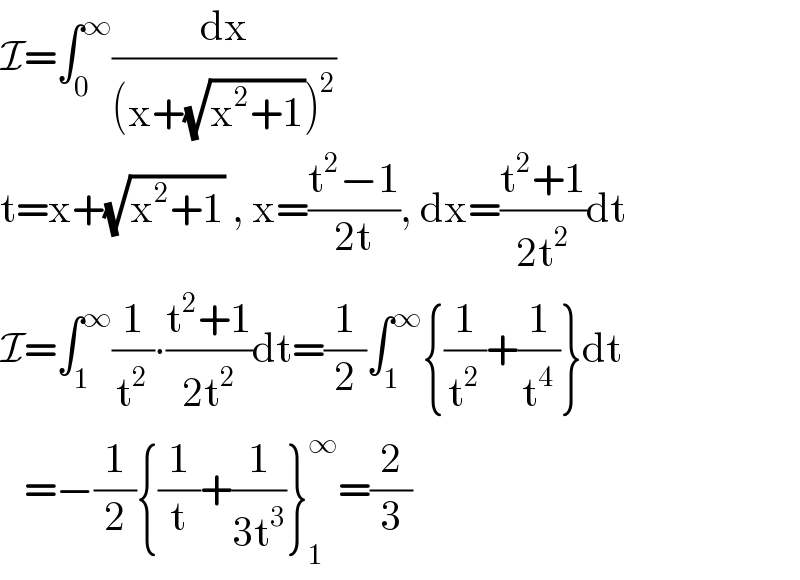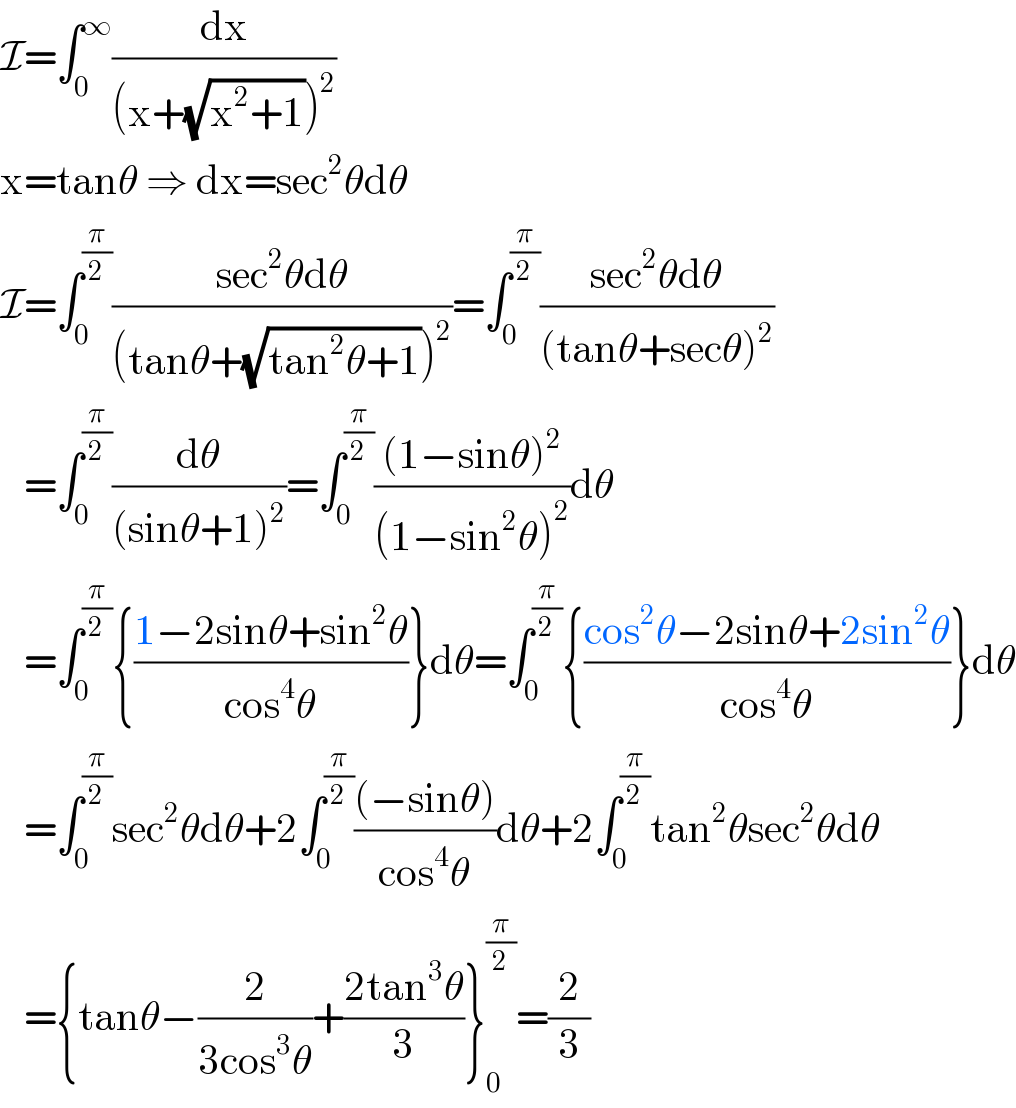
Question and Answers Forum
Question Number 124579 by bemath last updated on 04/Dec/20

Answered by liberty last updated on 04/Dec/20
![I=∫_( 0) ^( ∞) (dx/((x+(√(x^2 +1)))^2 )) letting cot 2β = x →dx = −2cosec^2 β dβ the integral becomes I=∫_(π/4) ^( 0) ((−2cosec^2 2β dβ)/((cot 2β+cosec 2β)^2 )) I=∫_(0 ) ^( π/4) (1/((cos 2β+1)^2 )) dβ = (1/2)∫_0 ^( π/4) (dβ/(cos^4 β)) I=(1/2)∫_0 ^( π/4) sec^2 β(tan^2 β+1) dβ I= (1/2) [ ((tan^3 β)/3)+tan β ]_( 0) ^(π/4) = (2/3)](Q124581.png)
Commented by peter frank last updated on 05/Dec/20

Answered by Bird last updated on 04/Dec/20
![I=∫_0 ^∞ (dx/((x+(√(x^2 +1)))^2 )) we do the changement x=sht ⇒I=∫_0 ^∞ ((cht)/((sht+cht)^2 ))dt =∫_0 ^∞ ((cht)/((((e^t −e^(−t) )/2)+((e^t −e^(−t) )/2))^2 ))dt =∫_0 ^∞ e^(−2t) (((e^t +e^(−t) )/2))dt =(1/2)∫_0 ^∞ (e^(−t ) +e^(−3t) )dt =(1/2)[−e^(−t) −(1/3)e^(−3t) ]_0 ^(+∞) =(1/2)( 1+(1/3))=(1/2)((4/3))=(2/3)](Q124582.png)
Answered by Dwaipayan Shikari last updated on 04/Dec/20
![As per previous result I=[−(1/(6(x+(√(x^2 +1)))^3 ))−(1/(2(x+(√(x^2 +1)))))]_0 ^∞ =(1/6)+(1/2)=(2/3)](Q124583.png)
Answered by Ar Brandon last updated on 04/Dec/20

Answered by Ar Brandon last updated on 04/Dec/20

